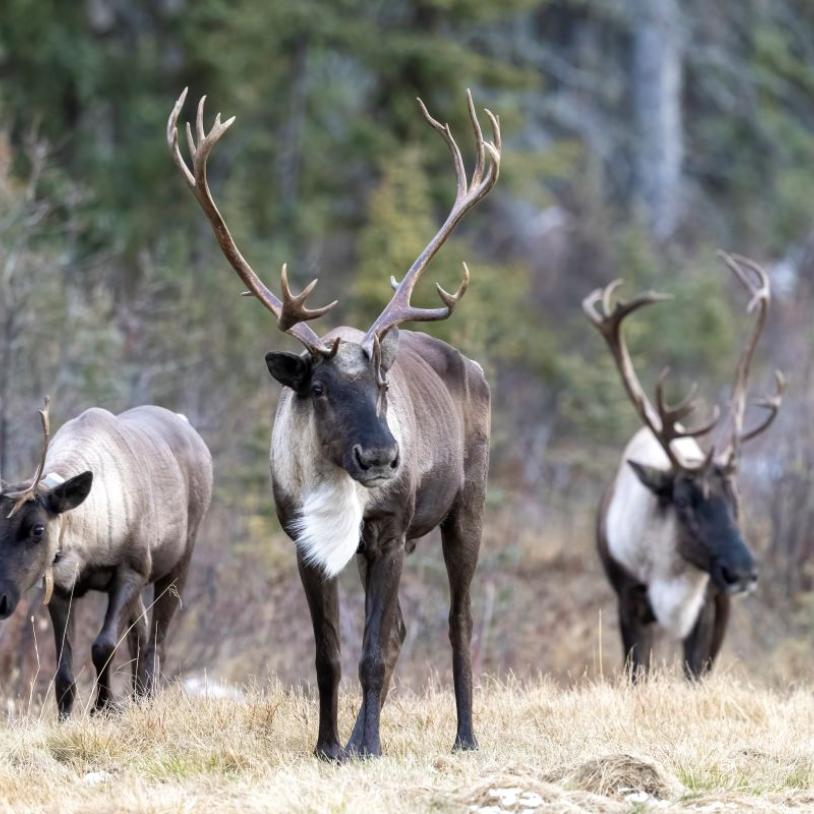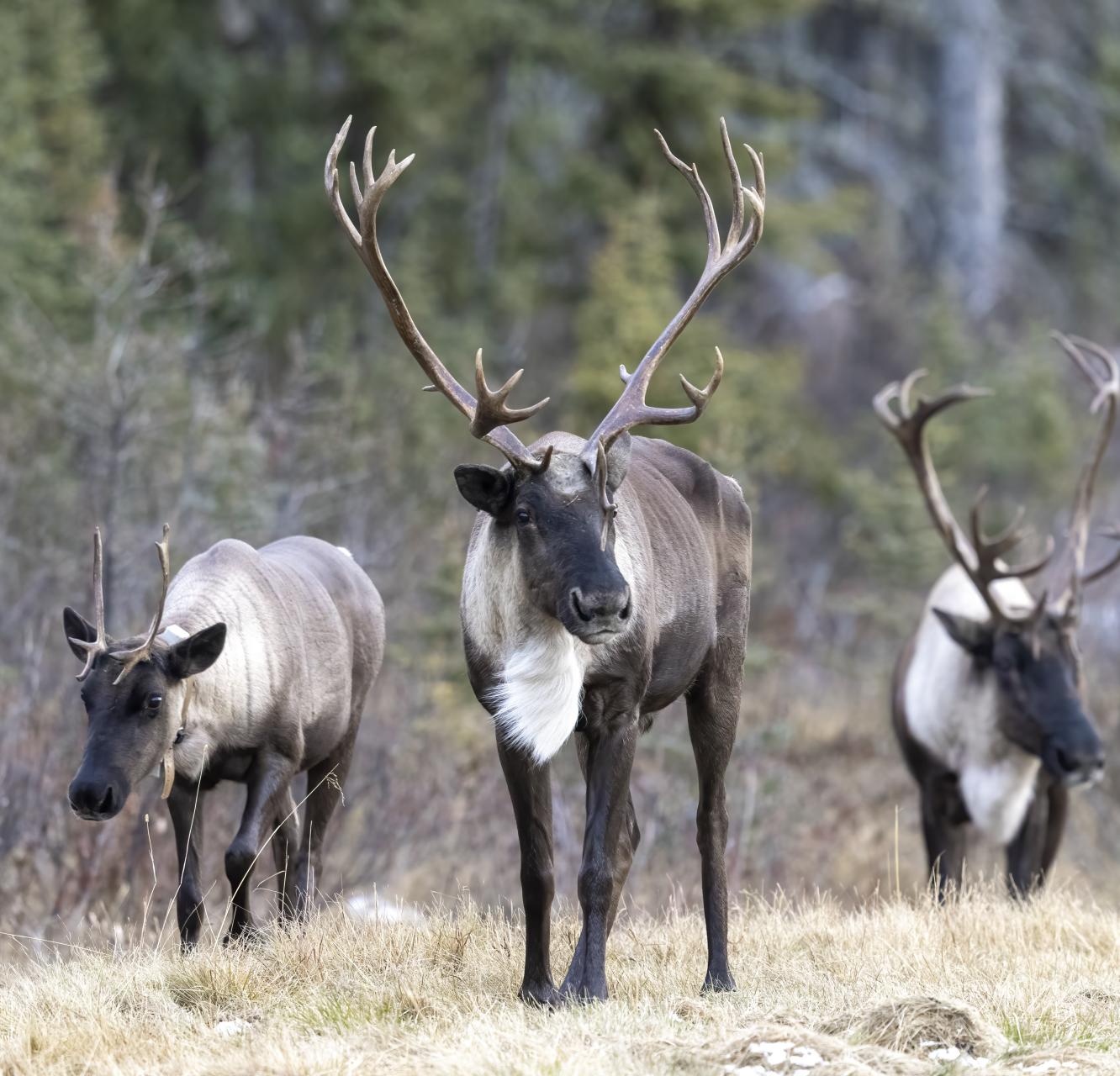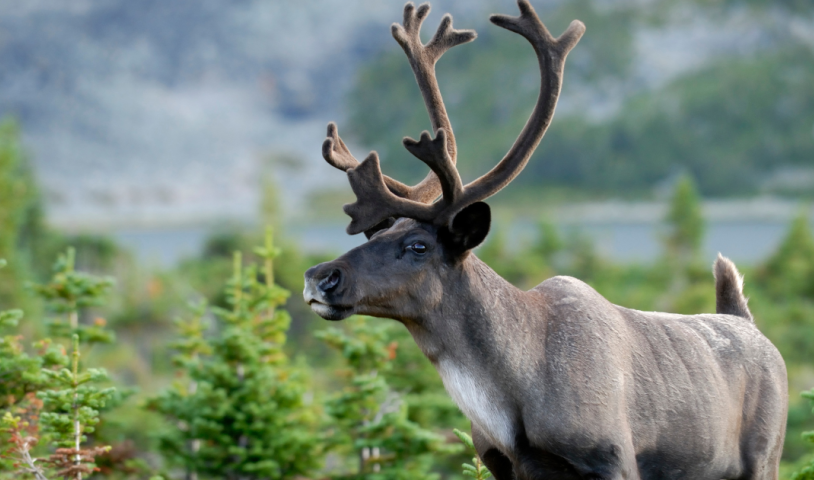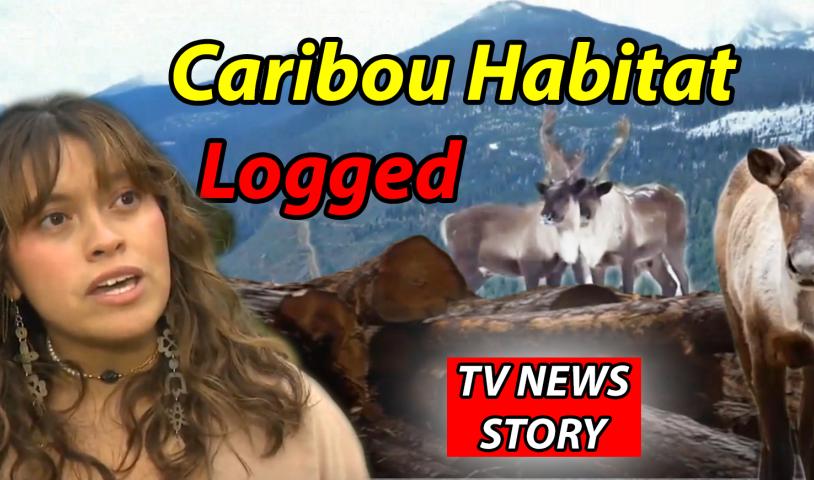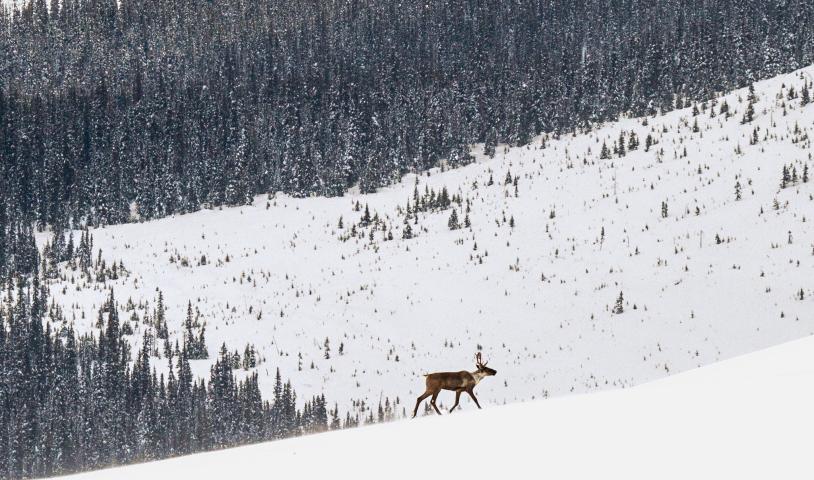Discovery prompts Robert Bateman and environmental groups to renew call for caribou protection
Monday, October 22, 2018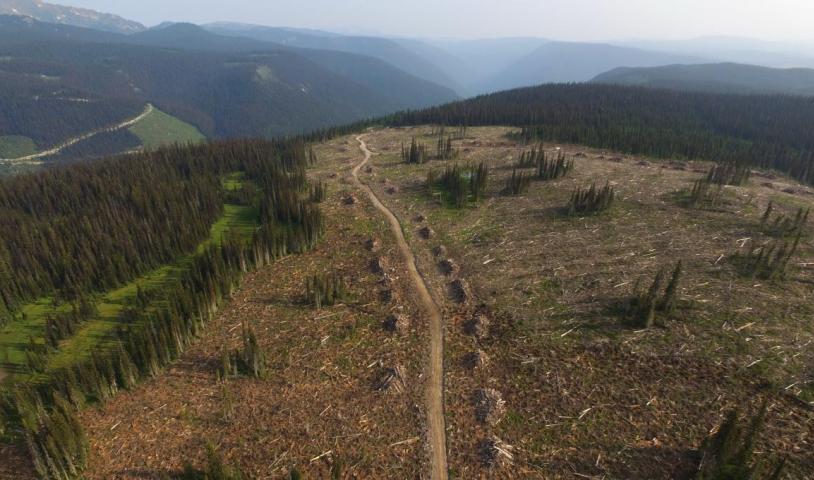
Ottawa holds the key to southern mountain caribou survival: an emergency protection order issuable under the Species at Risk Act, should B.C. continue to stall on recovery actions
VICTORIA — Environmental groups in B.C. have called on the provincial government to issue an immediate moratorium on new development in caribou critical habitat. This comes after discovering that, since May, the B.C. government has approved 83 new logging cutblocks in critical habitat of B.C.’s eight most at-risk southern mountain caribou populations.
Nearly six months have passed since federal Environment and Climate Change Minister Catherine McKenna declared that the species is facing “imminent threats to its recovery.” This should have triggered urgent, decisive action to ensure caribou recovery from B.C. provincial officials.
Caribou depend on intact forests. Logging in their habitat remains one of the biggest threats to their recovery. Without immediate, proactive conservation measures, including landscape-level habitat protection from resource development and the restoration of destroyed habitat, the southern mountain caribou unique to this region of the planet will continue to disappear.
The groups are therefore calling on B.C. to issue a moratorium on destructive activities in caribou critical habitat until recovery plans in line with federal and provincial duties under the Species at Risk Act are completed and implemented. If the province fails to do so, then the Governor in Council must immediately issue an emergency protection order under the Species at Risk Act (see background below for more details).
The announcement was made earlier this morning at a press conference just steps from the B.C. Legislature in Victoria with Robert Bateman, a renowned naturalist, artist and Officer of the Order of Canada, alongside Greenpeace Canada, the Harmony Foundation, the Wilderness Committee, Wildsight, and the Yellowstone to Yukon Conservation Initiative.
QUOTES
“The B.C. government says they care about protecting caribou but their actions say they care more about filling the pockets of logging companies,” said Charlotte Dawe, Conservation and Policy Campaigner for the Wilderness Committee, which discovered the new cutblocks awarded by the province. “We’re calling the province out on their deficient plans that have resulted in the disappearance of two herds. Caribou need their critical habitat protected now.”
“Protecting caribou habitat is not only important for sustaining caribou but to meet our commitments on climate change, biodiversity and the rights of First Nations. We need to manage nature for future generations, not short-term gain,” said Robert Bateman, renowned naturalist, artist, Officer of the Order of B.C., and Officer of the Order of Canada.
“With an increasing number of herds disappearing, Minister McKenna cannot afford to stand by while the B.C. government tinkers with an ineffectual ‘made in B.C.’ approach. The B.C. government must begin to collaborate in good faith to find solutions with Ottawa, First Nations and other stakeholders — or it must get out of the way,” said Eduardo Sousa, Senior Forest Campaigner for Greenpeace Canada.
“In the absence of government action, communities across southern mountain caribou range have been forced to take drastic and expensive measures,” said Candace Batycki, BC & Yukon Program Director for the Yellowstone to Yukon Conservation Initiative. “First Nations in northern B.C. have undertaken maternal penning, restoration, and their own recovery plans. First Nations and communities are providing leadership. We need B.C. — and Canada — to also provide leadership.”
“The devastating losses of mountain caribou over the past year in the South Purcells and South Selkirks highlights the failure of British Columbia’s caribou recovery efforts. Despite the obvious urgency, nothing has changed on the ground for caribou,” said Eddie Petryshen, Conservation Coordinator for Wildsight. “If B.C. continues to prioritize industry over caribou, the federal Minister of the Environment Catherine McKenna has an obligation under the Species At Risk Act to issue an emergency protection order for southern mountain caribou herds in B.C.”
“It’s a sad commentary that 43 years after I began my career as a caribou biologist we are still fighting for their survival. It’s long past time for serious action by government and industry,” said Michael Bloomfield, Founder and Executive Director of the Harmony Foundation.
-30-
Background:
The Burnt Pine, South Purcell and South Selkirk herds are among the herds that have become functionally extirpated in recent years. The transboundary Selkirk herd made international headlines in April when it was reported that its number dwindled to three (and now, two).
In May, McKenna announced that the southern mountain caribou is facing imminent threats to its recovery.
In June, scientists criticized the province’s emerging caribou recovery plan (a discussion paper released by Doug Donaldson, B.C.’s minister of forests, lands, natural resource operations and rural development) for ignoring scientific best practices, the role of logging in caribou decline, and even failing to comply with legal obligations under the Species at Risk Act.
These developments, in combination with the B.C. government’s continued failure to take the urgent action required, make the case for the federal government to undertake its duties under SARA and issue an emergency protection order. This order would empower the federal government to prohibit the destruction of specified critical habitat.
Caribou decline has significant impacts on First Nations’ rights. Caribou recovery is linked to upholding treaty rights; the right to hunt caribou is enshrined in Treaty 8 in northeast B.C. Industry-first caribou planning in B.C. is also interfering with First Nations’ efforts to step in and undertake effective recovery measures.
Photos: https://www.wildernesscommittee.org/cariboupressconference
For more information, interviews and more, please contact:
Candace Batycki, Yellowstone to Yukon Conservation Initiative, 250-352-3830
Charlotte Dawe, Wilderness Committee, 778-903-3992
Eduardo Sousa, Greenpeace Canada, 778-378-9955
Eddie Petryshen, Wildsight, 250-427-9885
Jesse Firempong, Communications Officer, Greenpeace Canada, 778-996-6549
